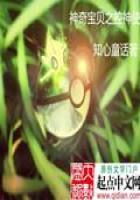As for Tonia, though she sends description to the poorhouse, let her make a millionaire of your fancy. Her blue-black hair, smoothly divided in the middle and bound close to her head, and her large eyes full of the Latin melancholy, gave her the Madonna touch. Her motions and air spoke of the concealed fire and the desire to charm that she had inherited from the /gitanas/ of the Basque province. As for the humming-bird part of her, that dwelt in her heart; you could not perceive it unless her bright red skirt and dark blue blouse gave you a symbolic hint of the vagarious bird.
The newly lighted sun-god asked for a drink of water. Tonia brought it from the red jar hanging under the brush shelter. Sandridge considered it necessary to dismount so as to lessen the trouble of her ministrations.
I play no spy; nor do I assume to master the thoughts of any human heart; but I assert, by the chronicler's right, that before a quarter of an hour had sped, Sandridge was teaching her how to plaint a six-strand rawhide stake-rope, and Tonia had explained to him that were it not for her little English book that the peripatetic /padre/had given her and the little crippled /chivo/, that she fed from a bottle, she would be very, very lonely indeed.
Which leads to a suspicion that the Kid's fences needed repairing, and that the adjutant-general's sarca** had fallen upon unproductive soil.
In his camp by the water hole Lieutenant Sandridge announced and reiterated his intention of either causing the Cisco Kid to nibble the black loam of the Frio country prairies or of haling him before a judge and jury. That sounded business-like. Twice a week he rode over to the Lone Wolf Crossing of the Frio, and directed Tonia's slim, slightly lemon-tinted fingers among the intricacies of the slowly growing lariata. A six-strand plait is hard to learn and easy to teach.
The ranger knew that he might find the Kid there at any visit. He kept his armament ready, and had a frequent eye for the pear thicket at the rear of the /jacal/. Thus he might bring down the kite and the humming-bird with one stone.
While the sunny-haired ornithologist was pursuing his studies the Cisco Kid was also attending to his professional duties. He moodily shot up a saloon in a small cow village on Quintana Creek, killed the town marshal (plugging him neatly in the centre of his tin badge), and then rode away, morose and unsatisfied. No true artist is uplifted by shooting an aged man carrying an old-style .38 bulldog.
On his way the Kid suddenly experienced the yearning that all men feel when wrong-doing loses its keen edge of delight. He yearned for the woman he loved to reassure him that she was his in spite of it. He wanted her to call his bloodthirstiness bravery and his cruelty devotion. He wanted Tonia to bring him water from the red jar under the brush shelter, and tell him how the /chivo/ was thriving on the bottle.
The Kid turned the speckled roan's head up the ten-mile pear flat that stretches along the Arroyo Hondo until it ends at the Lone Wolf Crossing of the Frio. The roan whickered; for he had a sense of locality and direction equal to that of a belt-line street-car horse;and he knew he would soon be nibbling the rich mesquite grass at the end of a forty-foot stake-rope while Ulysses rested his head in Circe's straw-roofed hut.
More weird and lonesome than the journey of an Amazonian explorer is the ride of one through a Texas pear flat. With dismal monotony and startling variety the uncanny and multiform shapes of the cacti lift their twisted trunks, and fat, bristly hands to encumber the way. The demon plant, appearing to live without soil or rain, seems to taunt the parched traveller with its lush grey greenness. It warps itself a thousand times about what look to be open and inviting paths, only to lure the rider into blind and impassable spine-defended "bottoms of the bag," leaving him to retreat, if he can, with the points of the compass whirling in his head.
To be lost in the pear is to die almost the death of the thief on the cross, pierced by nails and with grotesque shapes of all the fiends hovering about.
But it was not so with the Kid and his mount. Winding, twisting, circling, tracing the most fantastic and bewildering trail ever picked out, the good roan lessened the distance to the Lone Wolf Crossing with every coil and turn that he made.
While they fared the Kid sang. He knew but one tune and sang it, as he knew but one code and lived it, and but one girl and loved her. He was a single-minded man of conventional ideas. He had a voice like a coyote with bronchitis, but whenever he chose to sing his song he sang it. It was a conventional song of the camps and trail, running at its beginning as near as may be to these words:
Don't you monkey with my Lulu girl Or I'll tell you what I'll do--and so on. The roan was inured to it, and did not mind.
But even the poorest singer will, after a certain time, gain his own consent to refrain from contributing to the world's noises. So the Kid, by the time he was within a mile or two of Tonia's /jacal/, had reluctantly allowed his song to die away--not because his vocal performance had become less charming to his own ears, but because his laryngeal muscles were aweary.
As though he were in a circus ring the speckled roan wheeled and danced through the labyrinth of pear until at length his rider knew by certain landmarks that the Lone Wolf Crossing was close at hand. Then, where the pear was thinner, he caught sight of the grass roof of the /jacal/ and the hackberry tree on the edge of the arroyo. A few yards farther the Kid stopped the roan and gazed intently through the prickly openings. Then he dismounted, dropped the roan's reins, and proceeded on foot, stooping and silent, like an Indian. The roan, knowing his part, stood still, ****** no sound.
The Kid crept noiselessly to the very edge of the pear thicket and reconnoitred between the leaves of a clump of cactus.















